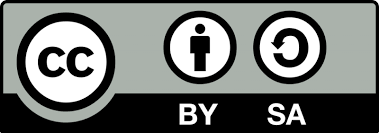School Inspection, quasi-market and government by the results
DOI:
https://doi.org/10.23824/ase.v0i30.640Downloads
Abstract
The evolution from a bureaucratic regime to post-bureaucratic characterized by the emergence of quasi-market models and government by the results, together with the influence of the New Public Management, have contributed to generating a new scenario of administrative regulation by the State in the different educational systems, guided by reports and documents of certain international and national economic organizations, and in which the School Inspection must be placed professionally with concrete proposals for its debate.
References
Alonso Benito, L. E. y Fernández Rodríguez C. J. (2009). El trabajo en la era posfordistaun malestar permanente. Papeles de relaciones ecosociales y cambio global, n.º 108, 2009, p. 21-33. Recuperado de: http://www.fuhem.es/media/cdv/file/biblioteca/revista_papeles/108 El_trabajo_en_la_era_posfordista_L.E.ALONSO_C.J.FERNANDEZ.pdf
Altrichter, H., y Kemethofer, D. (2015). Does accountability pressure through school inspections promote school improvement? School Effectiveness and School Improvement, 26(1), p. 32-56. DOI: 10.1080/09243453.2014.927369
Ball, S. J. (2000). Performativities and fabrications in the education economy: Towards the performative society? The Australian Educational Researcher, 27(2), 1-23. DOI: https://dx.doi.org/10.1007/BF03219719
Ball, S. J. (2003). The teacher's soul and the terrors of performativity. Journal of Education Policy, 18(2), 215-228. Recuperado de: https://www.researchgate.net/publication/232916965_The_Teacher's_Soul_and_the_Terrors_of_Perfomativity
Baxter, J. (Ed.). (2017). School Inspectors: Policy Implementers, Policy Shapers in National Policy Contexts. Springer.
Brown, M., McNamara, G., O’Hara, J. y O’Brien, S. (2016). Exploring the changing face of School Inspections. Eurasian Journal of Educational Research, 66, p. 1-26. https://dx.doi.org/10.14689/ejer.2016.66.1
Donaldson, G. (2013). The SICI Bratislava memorandum on inspection and innovation. Recuperado de: http://www.sici-inspectorates.eu/getattachment/ae886cf8-33b3-457d-a90a-d06ae4af5954
Ehren, M. C., Gustafsson, J. E., Altrichter, H., Skedsmo, G., Kemethofer, D., y Huber, S. G. (2015). Comparing effects and side effects of different school inspection systems across Europe. Comparative education, 51(3), 375-400. DOI: https://dx.doi.org/10.1007/s11092-012-9156-4
Escudero Muñoz, J., y Moreno Yus, M. A. (2012). Mejorar la educación, la autonomía de los centros y el servicio de inspección educativa. Avances en Supervisión Educativa, (17). Recuperado de: https://avances.adide.org/index.php/ase/article/view/518
Elliott, J. (2002). La paradoja de la reforma educativa en el Estado evaluador: Consecuencias para la formación docente. Perspectivas, 32(3), pp. 1-20. Recuperado de: http://www.ibe.unesco.org/fileadmin/user_upload/archive/Publications/Prospects/ProspectsPdf/123s/elliots.pdf
Hanushek, E.A., y Woessmann, L. (2007). The Role of Education Quality in Economic Growth. Policy Research Working Paper 4122, Washington, DC: World Bank. Recuperado de: https://openknowledge.worldbank.org/bitstream/handle/10986/7154/wps4122.pdf?sequence=1&isAllowed=y
Hood, C. (1991). A public management for all seasons? Public administration, 69(1), 3-19. Recuperado de: http://www.studereninleiden.nl/images/uploads/Bestuurskunde/BSK_proefstuderen_artikel_all_seasonsfulltext.pdf
Hyndman, N. e Irvine, L. (2016). New Public Management: The Story Continues. Financial Accountability & Management, 32(4), p. 385-408, https://doi.org/10.1111/faam.12100
Maroy, C. (2008a). ¿Por qué y cómo regular el mercado educativo? Profesorado. Revista de Currículum y Formación de Profesorado,12(2). Recuperado de: http://www.redalyc.org/pdf/567/56712202.pdf
Maroy, C. (2008b). Vers une régulation post-bureaucratique des systèmes d’enseignement en Europe? Sociologie et sociétés, 40(1), pp. 31–55. DOI: https://dx.doi.org/10.7202/019471ar
Puelles Benítez, M. (2009). Globalización, neoliberalismo y educación. Avances en Supervisión Educativa, (11). Recuperado de: https://avances.adide.org/index.php/ase/article/view/429
Tedesco, J. C. (2007). Gobierno y dirección de los sistemas educativos en América Latina. Revista Pensamiento Educativo, 40(1), p. 87-102. Recuperado de: http://200.6.99.248/~bru487cl/files/libros/COX/PENSAMIENTO_EDUCATIVO_40-I.pdf#page=87
Van Bruggen, J. C. (2010). Inspectorates of education in Europe; some comparative remarks about their tasks and work. Brussels: SICI. Recuperado de: http://www.sici-inspectorates.eu/Members/Comparative-Analyses/Inspectorates-of-Education-in-Europe
Verger, A., y Normand, R. (2015). Nueva gestión pública y educación: elementos teóricos y conceptuales para el estudio de un modelo de reforma educativa global. Educação & Sociedade, 36(132), pp. 599-622. https://dx.doi.org/10.1590/ES0101-73302015152799
How to Cite
Issue
Section
Published
Keywords:
License

Attribution Share-Alike CC BY-SA
Those authors who have publications with this magazine, accept the following terms:
A) The authors will retain their copyrights, which will be simultaneously subject to the Creative Commons Attribution License that allows others to re-mix, modify and develop on your work even for commercial purposes, provided they credit you And to license their new works under the same terms.
B) The authors will retain the rights of exploitation of the intellectual property of this work, and especially the rights of reproduction, distribution, transformation in any of its modalities and public communication of said work, which will be simultaneously subject to the License Of recognition of Creative Commons that allows others to re-mix, modify and develop on your work even for commercial purposes, provided they credit you and license your new works under the same terms.
Creative Commons Attribution-ShareAlike 4.0 International Public License

